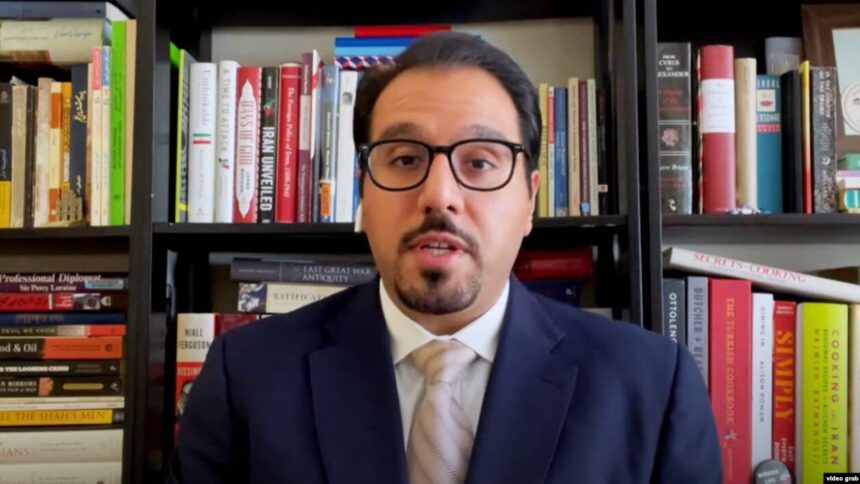The United Nations is set to reimpose sweeping “snapback” sanctions on Iran after the UN Security Council rejected a last-minute bid by Russia and China to delay the move. The sanctions will officially take effect at 8 p.m. Eastern time on September 27, unless an unexpected breakthrough occurs.
The measures include:
- A conventional arms embargo
- Restrictions on ballistic-missile activity
- A ban on uranium enrichment and reprocessing
- Global asset freezes and travel bans targeting Iranian individuals and entities
“Not About This Bureaucratic Fight”
Behnam Ben Taleblu, senior fellow at the Foundation for Defense of Democracies (FDD) in Washington, told RFE/RL that the real challenge will not be the reimposition itself, but its enforcement.
“It’s not about this bureaucratic fight. It is about the bureaucratic fights yet to come,” Ben Taleblu said.
He explained that the snapback restores six UN Security Council resolutions from 2006–2010, which had been suspended after the 2015 nuclear deal (JCPOA). These resolutions cover uranium enrichment bans, arms transfers, missile testing prohibitions, and restrictions on Iran’s nuclear infrastructure.
Next Steps Inside the UN
According to Ben Taleblu, the European Union and other entities will now have to update their own sanctions frameworks in line with the renewed UN measures. He stressed the importance of recreating a UN “panel of experts” to monitor implementation, something previously blocked by Russia.
Great-Power Competition
Ben Taleblu noted that Washington must approach the issue through the lens of great-power competition:
“This is much bigger than just Iran and the Middle East. The Trump administration needs a diplomatic ground game with its European partners, using the UN system to multilateralize maximum pressure.”
Diplomacy Still Possible
Contrary to claims that sanctions endanger diplomacy, Ben Taleblu argued they could strengthen it:
“The sanctions of 2006–2010 paved the way for diplomacy that led to the JCPOA. Pressure often forces more serious negotiations.”
U.S. Leverage Over Iran
With Europe no longer firmly in Iran’s corner, Tehran faces greater isolation. Ben Taleblu warned that threats to leave the Nuclear Non-Proliferation Treaty (NPT) could backfire, potentially triggering Israeli or U.S. military action.
Role of Russia and China
Russia and China are expected to continue shielding Iran within the UN system. Ben Taleblu warned that China’s potential increase in Iranian oil imports could undermine Western sanctions and test the will of the U.S. and Europe to enforce the measures.
Conclusion
The snapback sanctions represent a critical test for U.S. diplomacy, UN enforcement mechanisms, and Iran’s resilience. The outcome, experts stress, will depend less on the formal adoption of sanctions and more on how effectively they are enforced.







